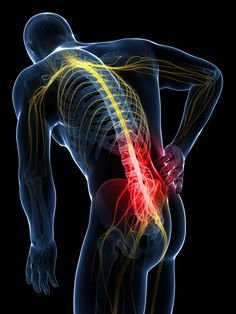Chronic nerve pain, also known as neuropathic pain, can be a debilitating condition that significantly impacts quality of life. Understanding the complexities of chronic nerve pain, its diagnosis, and effective management strategies is crucial for individuals experiencing this persistent discomfort. This article delves into the various aspects of chronic nerve pain, from its definition and common causes to the range of treatment options available. By exploring the nuances of diagnosing and managing chronic nerve pain, individuals can gain valuable insights into effectively addressing this challenging condition.
Understanding Chronic Nerve Pain
Definition of Chronic Nerve Pain
Chronic nerve pain is like having that one friend who never knows when to leave the party – it sticks around long after it’s welcome. It’s persistent, often lasting for months or even years, causing discomfort and affecting daily life.
Types of Nerves Involved in Chronic Pain
When it comes to chronic nerve pain, it’s like dealing with a group of unruly houseguests – different types of nerves can be involved. Some pain stems from damaged peripheral nerves, while others may originate from the central nervous system. Each type brings its own set of challenges and treatments.
Diagnosing Chronic Nerve Pain
Medical History and Physical Examination
Diagnosing chronic nerve pain is a bit like detective work – the doctor will take a thorough medical history and conduct a physical examination to piece together the clues. Your job? Be the best sidekick by providing all the necessary details.
Diagnostic Tests for Chronic Nerve Pain
Sometimes, the body plays hard to get, and that’s where diagnostic tests come in handy. From nerve conduction studies to imaging tests, these tools help uncover the root of the nerve pain mystery, guiding the treatment plan.
Common Causes of Chronic Nerve Pain
Neuropathy and Nerve Damage
Neuropathy and nerve damage are like the ultimate duo of chronic nerve pain villains. Whether it’s from diabetes, injury, or other conditions, these troublemakers can wreak havoc on your nerves, leading to persistent discomfort.
Chronic Conditions Contributing to Nerve Pain
Chronic nerve pain often likes to bring friends along, and by friends, we mean underlying health conditions. From fibromyalgia to autoimmune diseases, these conditions can exacerbate nerve pain, making it a tag team match you never signed up for.
Treatment Options for Chronic Nerve Pain
Medication Management
When it comes to tackling chronic nerve pain, medication can be your trusty sidekick. From over-the-counter pain relievers to prescription medications, finding the right balance can help dial down the discomfort and improve quality of life.
Interventional Procedures for Pain Relief
Sometimes, chronic nerve pain needs a more hands-on approach, quite literally. Interventional procedures like nerve blocks or spinal cord stimulators can offer targeted relief, helping you kick chronic pain to the curb, one procedure at a time.
Medications for Managing Chronic Nerve Pain
When it comes to battling chronic nerve pain, medications can be a crucial ally in your pain management arsenal.
Prescription Pain Medications
Prescription pain medications like opioids can provide relief for severe nerve pain, but they come with a high risk of addiction and side effects. It’s important to work closely with your healthcare provider to find the right balance.
Neuropathic Pain Medications
Neuropathic pain medications such as gabapentin and pregabalin can help calm overactive nerves and reduce pain signals. These drugs are specifically designed to target nerve pain and can be a game-changer for many individuals.
Physical Therapy and Rehabilitation for Chronic Nerve Pain
Physical therapy isn’t just for recovering from injuries – it can also be a powerful tool in managing chronic nerve pain.
Benefits of Physical Therapy for Nerve Pain
Physical therapy can improve flexibility, strengthen muscles, and promote better posture, all of which can alleviate nerve pain. Plus, working with a physical therapist can help you develop a personalized plan to target your specific pain triggers.
Exercises and Techniques for Nerve Pain Relief
From gentle stretches to targeted strength training exercises, physical therapists have a variety of tools to help you manage and reduce your nerve pain. Learning proper body mechanics and posture can also make a big difference in your pain levels.
Alternative Therapies for Chronic Nerve Pain
Looking beyond traditional medicine, alternative therapies can offer additional options for managing chronic nerve pain.
Acupuncture and Acupressure
Acupuncture and acupressure are ancient practices that involve stimulating specific points on the body to relieve pain and promote healing. Many people find these therapies to be effective in managing their nerve pain.
CBD and Medical Cannabis for Nerve Pain
CBD and medical cannabis have gained popularity for their potential pain-relieving properties. These natural remedies can help reduce inflammation and calm nerve activity, offering relief to those with chronic nerve pain.
Lifestyle Modifications to Manage Chronic Nerve Pain
In addition to medications and therapies, making some lifestyle changes can have a significant impact on how you experience and cope with chronic nerve pain.
Dietary Changes for Nerve Pain Relief
Eating a balanced diet rich in anti-inflammatory foods can help reduce nerve pain and improve overall health. Avoiding processed foods and sugar can also help manage inflammation, which can exacerbate pain.
Stress Management and Mind-Body Techniques
Stress can heighten nerve pain, so learning stress management techniques like deep breathing, meditation, and yoga can be beneficial. Engaging in activities that promote relaxation and well-being can help you better cope with chronic nerve pain in the long run.In conclusion, navigating the challenges of chronic nerve pain requires a comprehensive approach that integrates medical interventions, lifestyle modifications, and alternative therapies. By staying informed about the diagnosis and management strategies discussed in this article, individuals can take proactive steps towards alleviating their chronic pain and improving their overall well-being. Remember, seeking professional guidance and exploring various treatment options tailored to individual needs are instrumental in managing chronic nerve pain effectively.



